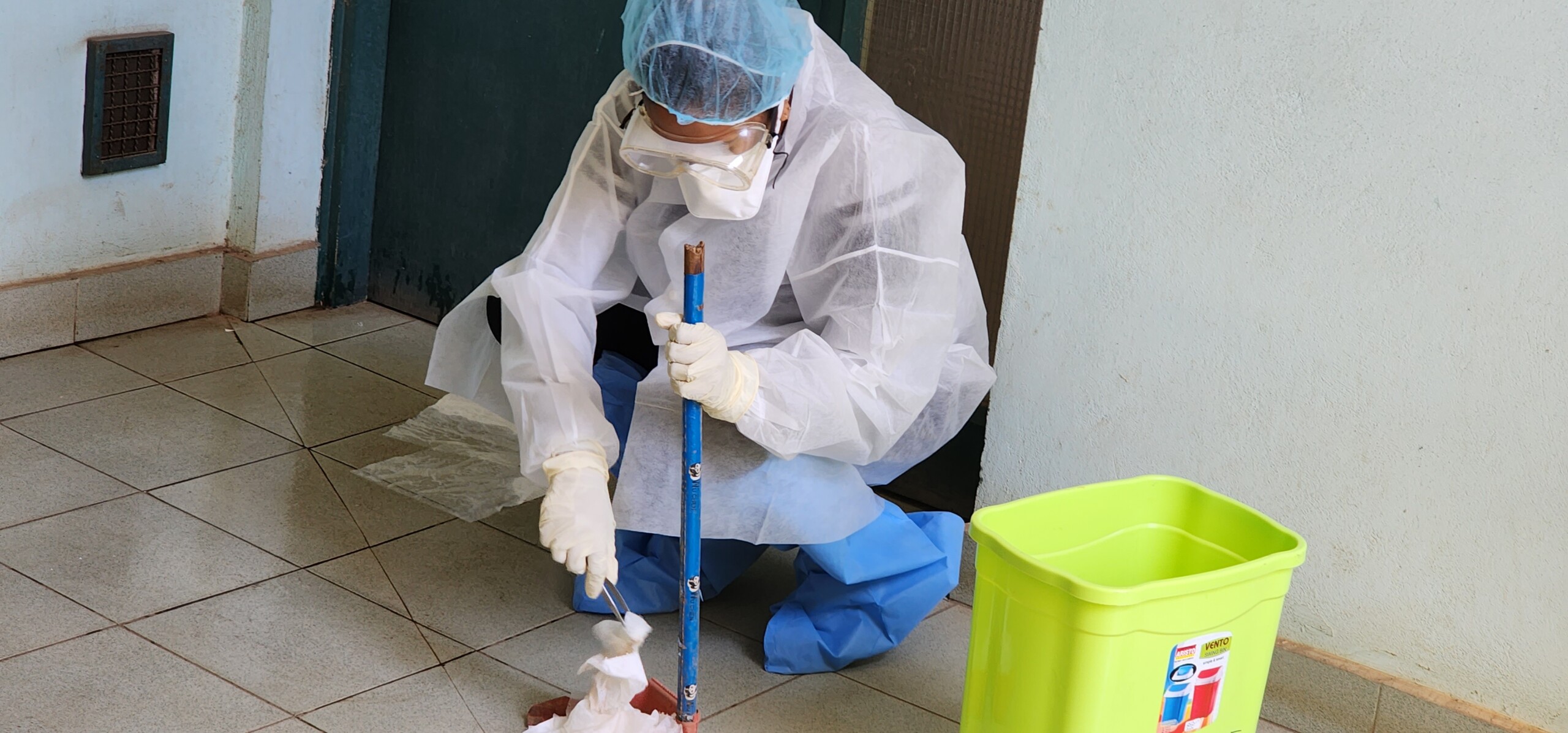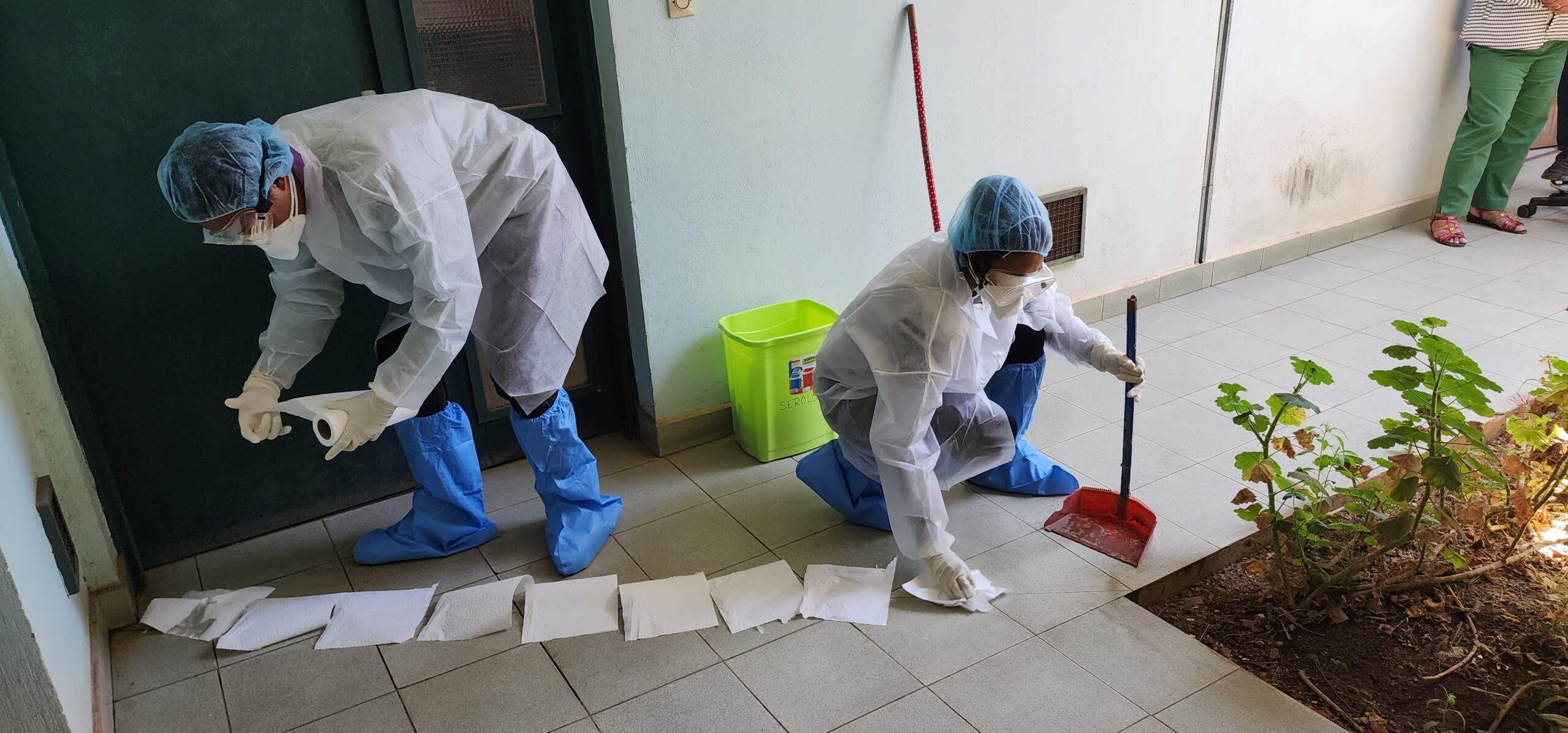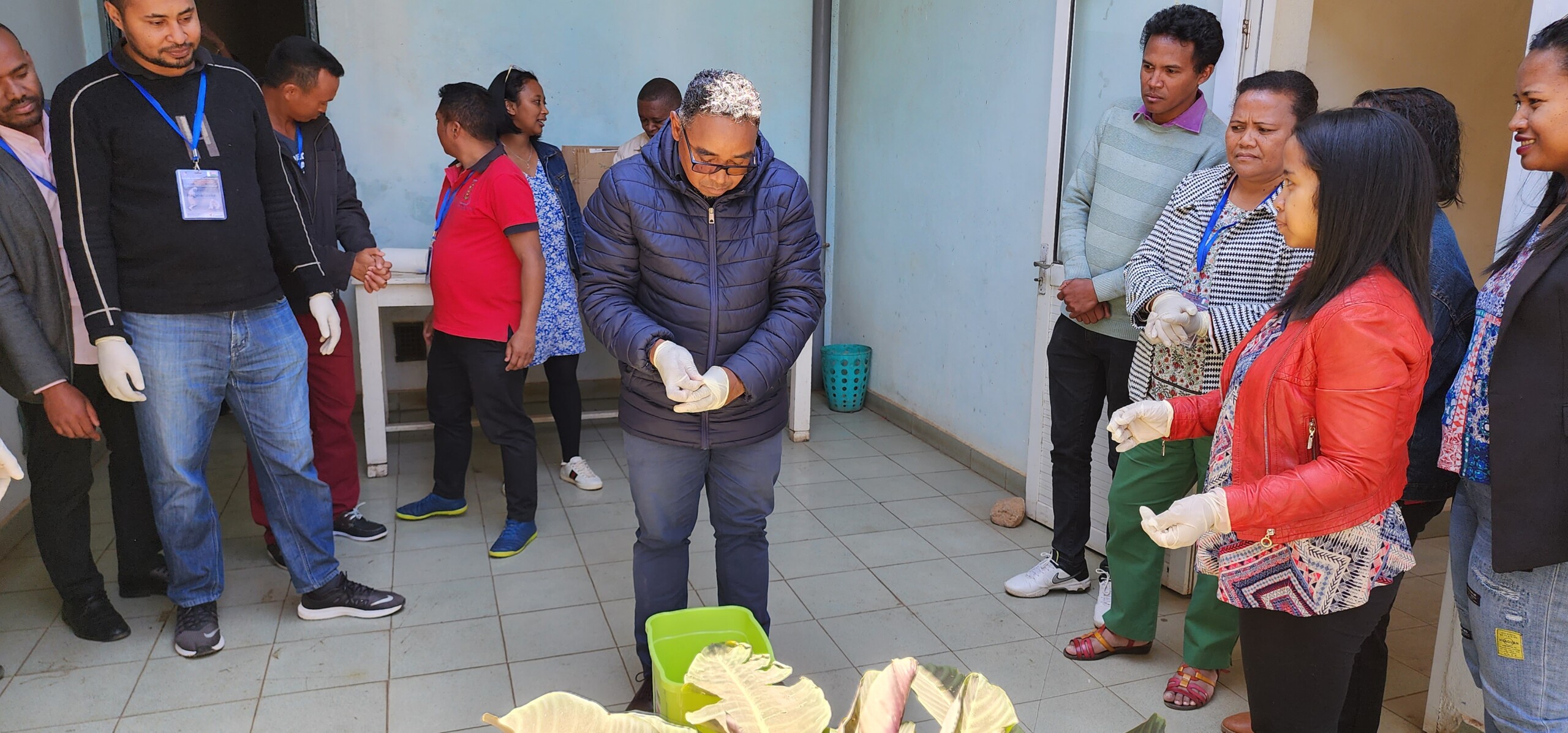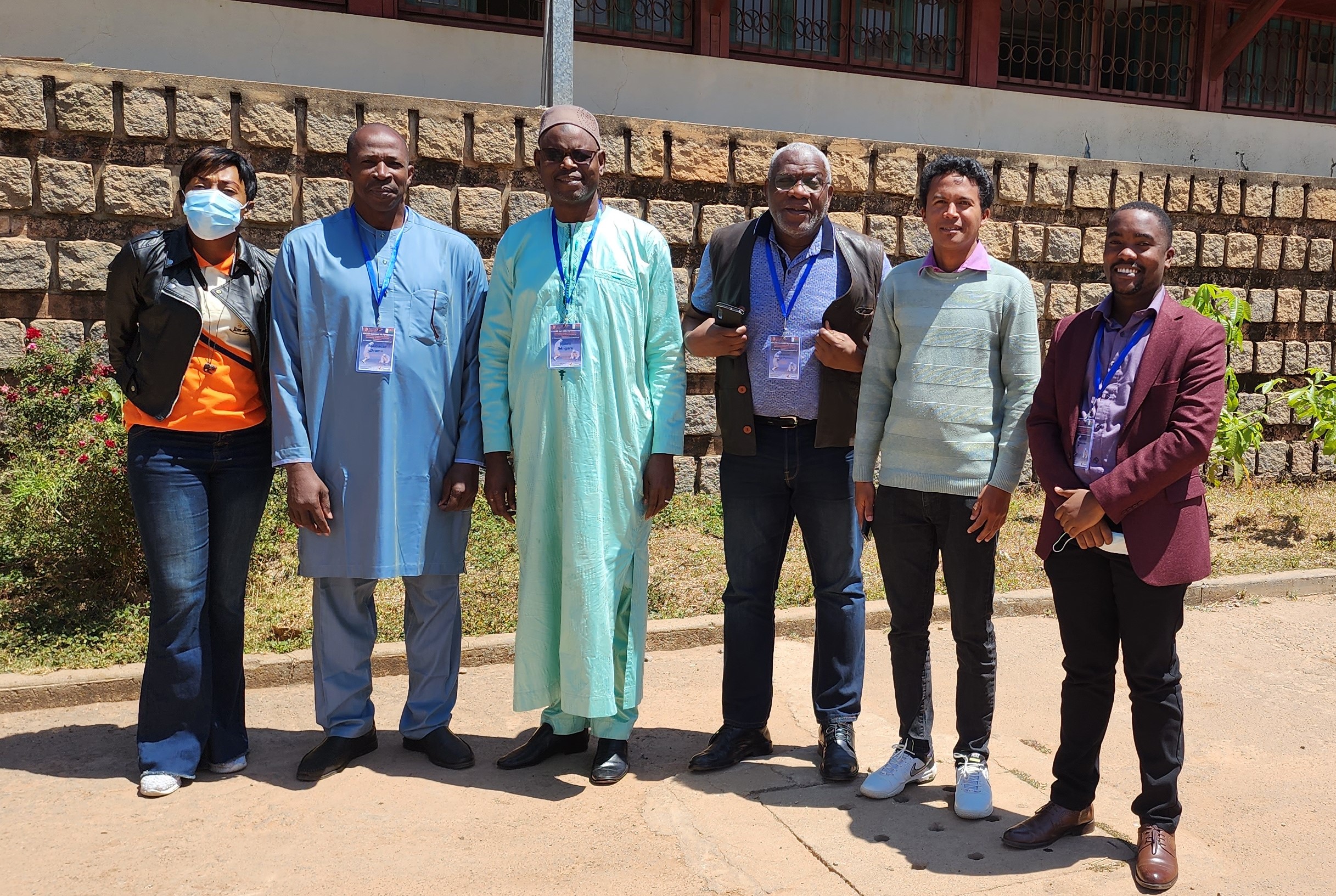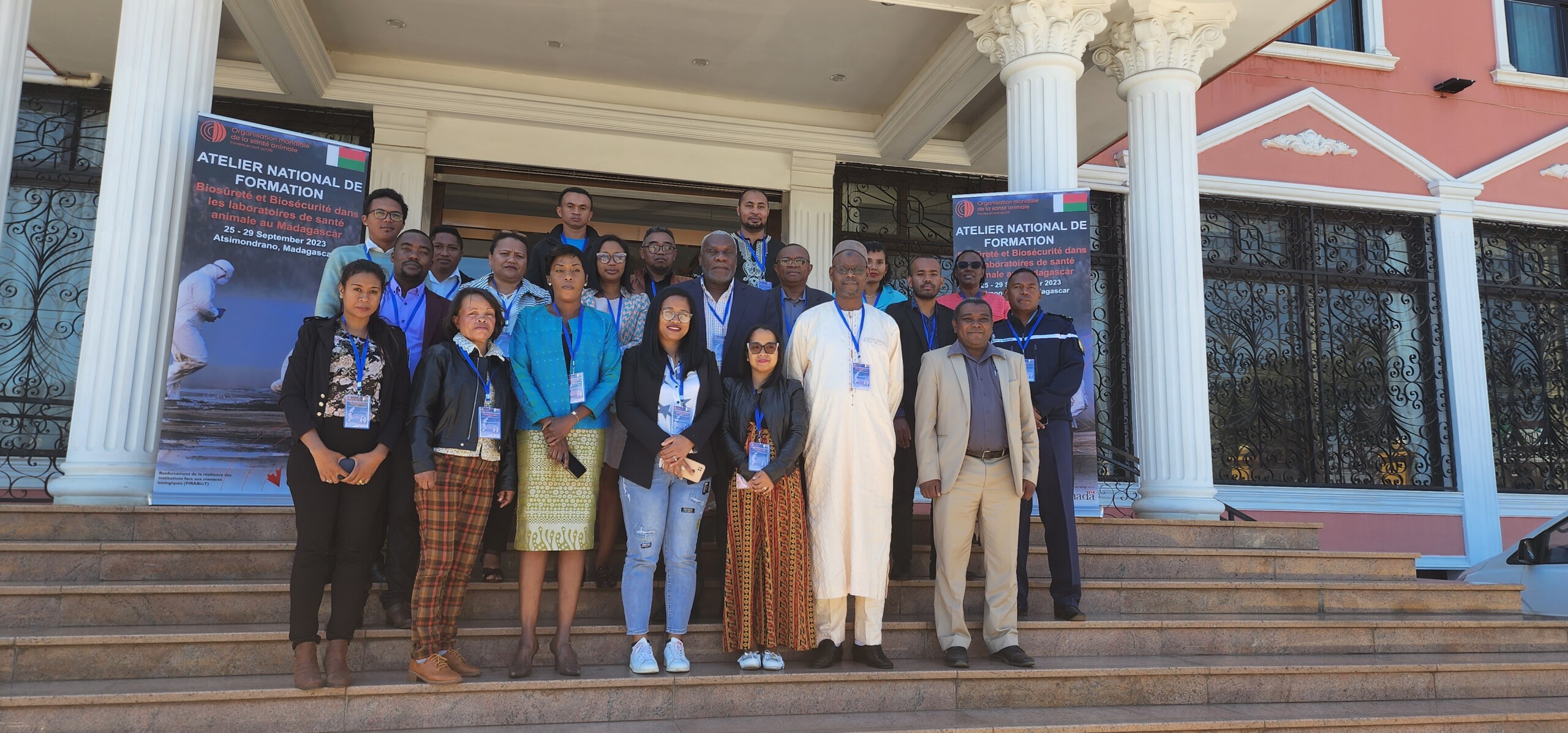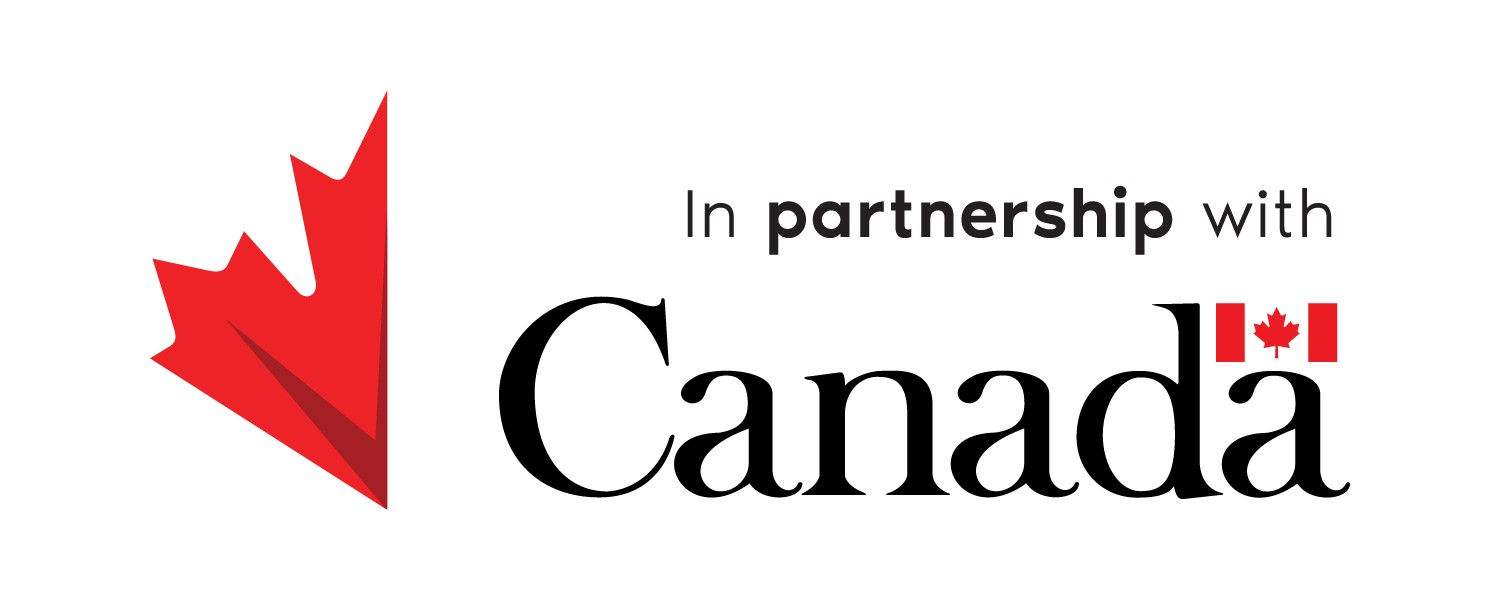
Madagascar recently benefitted in a comprehensive training workshop on biosafety and biosecurity in animal health laboratories organized by the World Organisation for Animal Health (WOAH The workshop which took place from 25 to 29 September in Atsimondrano, Madagascar, aimed at teaching the technical laboratory personnel techniques in biological safety, to improve their safety, strengthen biosafety practices, and maintain the quality of research outputs.
During this week, a team of experts led by Prof. Emmanuel Couacy-Hymann (President of WOAH’s Biological Standards Commission provided participants with knowledge and skills on the development and implementation of a comprehensive biorisk management system − in accordance with WOAH’s standards and guidelines, as well as other international standards. This was done through a combination of lectures, group discussions, tabletop exercises and demonstrations.
Drs. Toky Ramilijohn and Hoby Andriamampianina demonstrate how to clean up a laboratory spillage. Picture © I. Busuulwa (woah) 2023
Laboratories that handle biological samples face a wide range of risks, ranging from normal, low-risk samples to highly pathogenic or dangerous samples. It is essential to put in place appropriate measures to prevent accidents, cross-contamination and potential outbreaks. Support for laboratories tailored to the risk level of the samples handled contributes to the strengthening of existing safety procedures and promotion of a safety culture in biological research.
Dr. Tantely Randriamparany demonstrates how to remove gloves. Picture © I. Busuulwa (woah) 2023
Other experts involved in the training included Prof. Boubacar Sidiki Ibrahim Drame (Head of Laboratory at the Mali Hospital), Prof. Djibril Sangare (West African Biorisk Management trainer for Regional Integrated Surveillance and Laboratory Network (RISLNET)) and Ms. Carine Kades (Administrative Manager and Training Director for the Congolese Foundation for Medical Research).
Group Photo (L-R) : Ms. Carine Kades, Prof. Boubacar Sidiki Ibrahim Drame, Prof. Djibril Sangare, Prof. Emmanuel Couacy-Hymann, Dr. Toky Ramilijohn and Mr. Ian Peter Busuulwa. Picture © I. Busuulwa (woah) 2023
This training was the first of a series of capacity building initiatives planned for Madagascar as a beneficiary of WOAH’s Fortifying Institutional Resilience Against Biological Threats (FIRABioT) Project. The project, which was launched in March 2023, aims to improve WOAH Members’ abilities to respond to emergencies (including agro-crime and agro-terrorism events) particularly in Africa, by implementing capacity building activities in the areas of emergency management, disease intelligence, sustainable laboratories, and veterinary legislation.
Other project activities that Madagascar will benefit from during the next two years include workshops on agrocrime and agroterrorism, a disease simulation exercise and support in developing zoonotic disease contingency plans.
Finally, Dr. Toky Ramilijohn – the Head of the National Laboratory for Veterinary Diagnostics thanked WOAH and Global Affairs Canada for delivering this training and encouraged participants to practice and use what they learned in their daily work, as they head back to their respective institutions. The participants resolved to cascade the training to the technical personnel in the sub-national veterinary laboratories.
The FIRABioT project is funded by Global Affairs Canada’s Weapons Threat Reduction Program.
